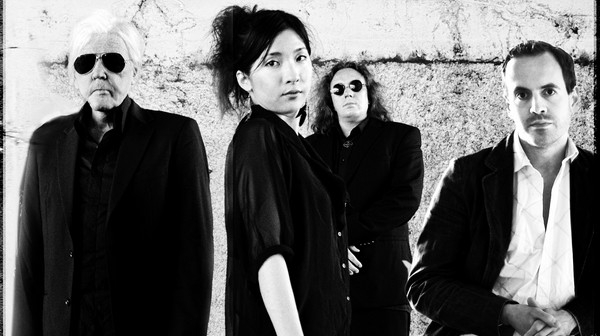For Edgar Froese, founder and only constant member of Tangerine Dream, his work is his art. His approach to it is anything but formulaic. There’s a strong sense of experimentation nestled beneath often simple progressions and tones. The deliberation that goes into the composition of these works is what distinguishes them from so many others that have tried, often in vain, to mimic the sounds of groups like Tangerine Dream.
“Without a compelling and challenging factor for a musician, there wouldn’t be an interesting result for those listening and watching,” Froese says, describing the approach to composing his work. “The more your art is a mirror of your subjective love and hate and your every day fight for a better result, the more people will feel a personal kind of resonance towards your serious ideas.”
In a contemporary setting, Tangerine Dream mightn’t seem as experimental and avant-garde as it truly is. In the world of electronic music, early Tangerine Dream releases were about as experimental as they got, manipulating sound in ways that were truly groundbreaking, and pioneering a style of music that would eventually come to be as present in the modern musical lexicon as just about any genre. The musical development of Edgar Froese from heritage instrumentation to electronic equipment is fascinating to observe.
“Starting with acoustic instruments in my childhood, moving to electric and analogue equipment in my youth, moving further into the adventure of using digital components for performing and recording and finally ending up working within the complete unlimited open systems of newer computer hardware and software has been a journey which is incomparable for an artist like myself,” he says. “I was very gifted to have this chance, meeting very interesting people and trying to serve the music the best way possible. Of course every new technology has changed my perception, my perspectives towards new horizons in creating sounds, performing and recording methods as well as learning from others. I was always listening carefully to those who invented new technologies, without some of these great minds like Bob Moog, Tangerine Dream’s music would not have been possible.”
Tangerine Dream’s musical efforts haven’t been limited to singles, EPs and albums. Creating music for a number of different platforms is something that has typified Tangerine Dream’s attitude to music throughout their career. The group has worked on a number of film scores, and more recently, they’ve ventured into the world of video game scores, perhaps most notably including the score for Grand Theft Auto V.
“There is a creative meeting and melting point of two art forms which both have to be transformed into one story glued together, supporting but not disturbing each other,” says Froese. “Working within the movie industry for many years, I’m very familiar with all the pros and cons of the genre. The great thing about it is the relationship between two elements which both have a strong physical as well as psychological moving factor: the picture and the sound. Both elements are permanently changing their centre point, becoming counterpoints and even working surprisingly irritatingly on various levels of the viewer’s perception.
“I did a big portion of work for Rockstar’s GTA V Open World Game, which has taken my full creative attention for nearly seven months, creating 62 hours of sounds and multi-track themes,” he says. “The work here is completely different from a linear driven chronology like you’re faced with in a movie for the big screen. The fact that you’re faced with reacting to an interactive platform all the time is a big challenge if you want to do a professional score.”
Unsurprisingly it’s Tangerine Dream’s enthusiasm in the progressive and the peculiar that see them coming to Melbourne for a number of unique performances. On top of performing a show of their own music in a more traditional setting, they’ll also be playing their score of William Friedkin’s Sorcerer live, alongside the visual of the film as a part of Melbourne Music Week. Froese will also be here to discuss his career in music as a keynote speaker at Face the Music.
“I can’t and don’t want to read a user manual on how to become a creative developer, performer and sales man of modern music technology,” he notes.
“My view to music is very different, maybe too different just for a short panel, but what I would love to explain is the fact that music – being the most abstract art form – can change your perception towards your aims in life, and can even trigger something within you to make yourself think about some of the fundamental questions a human being is faced with. Not giving ultimate answers, but challenging yourself to start asking. Too many people are waiting for answers, but have forgotten to bring up questions.”
BY KEATS MULLIGAN

